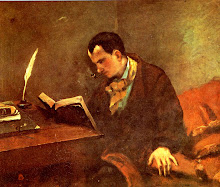The difference of function at public display speeches compared to imperial orations is an interesting one. Instead of being propaganda for the ruling class, like it might be used for in modern times, rhetoric does not serve as mass communication due to the fact that the performance is solely for the elite. Propaganda takes on a different role in a time with no internet or CNN.
As per Classic Rhetoric: Has anyone seen the HBO series Rome? I've been watching the first season and realized when I was reading Cicero that he's in the series. Of course his role and relationship to Caesar is exaggerated, but there he is! Giving Julius a hard time. I thought that out of his selections Rhetoica ad Herennium was the most useful to me. It is well organized and clear. His later selections get a bit wordy.
His dig at women in RaH: "Sharp exclamation injures the voice and likewise jars the hearer, for it has about if something ignoble, suited rather to feminine outcry than to manly dignity in speaking" (pg. 169)
Philodemus' dig: "Not even a woman would be so foolish as to choose the worse when the better is present" (203).
Philodemus' view that epideictic rhetoric is art but not the deliberative, forensic, or political science branches makes sense by modern standards. We don't consider law as an art form, though it takes considerable talent. Creative is expressive of one's self and not just organized facts.

I'm not sure I'm understanding your references to the "digs" at women - did you agree with them or not agree with them?
ReplyDeleteAnyway - I don't know that I agree with the idea that rhetoric as public entertainment necessarily raises it to the art form Aristotle was aiming at, but as a more immediate source of propaganda, the imperial orations would have been effective, especially with the emperor's sword-wielding guards there to make sure everyone bought it.
By the way, I like the guy in "Rome" who walks around yelling out the latest news - now THAT would have been a cool job!
Sword-wielding guards make any oration effective--regardless of rhetoric. I'm contemplating implementing it in my classroom.
ReplyDeleteHonestly, I can't imagine what exactly they did to make rhetoric appealing to the masses...Maybe it was just the swords. It would have to have quite a different approach than what we are reading. I can barely mention the topic without the general populace glazing over. Maybe society is different now. Or maybe we just don't use swords effectively...
Either the swords or the s-words -- scimitar is a sword that starts with s.
ReplyDeleteI don't really think either rhetor was "digging" on the women. Making comparisons that the literate masses could understand, yes, making fun of women, I think not.
Maybe they gave out food at their public demonstrations of rhetoric. That's the sure way to increase attendance.
ReplyDeleteIs it possible that oration became a sort of theater piece? Even though people knew (on some level) the lines, they still enjoyed hearing them proclaimed by skilled speakers, and enjoyed the different twist put on them by each speaker.